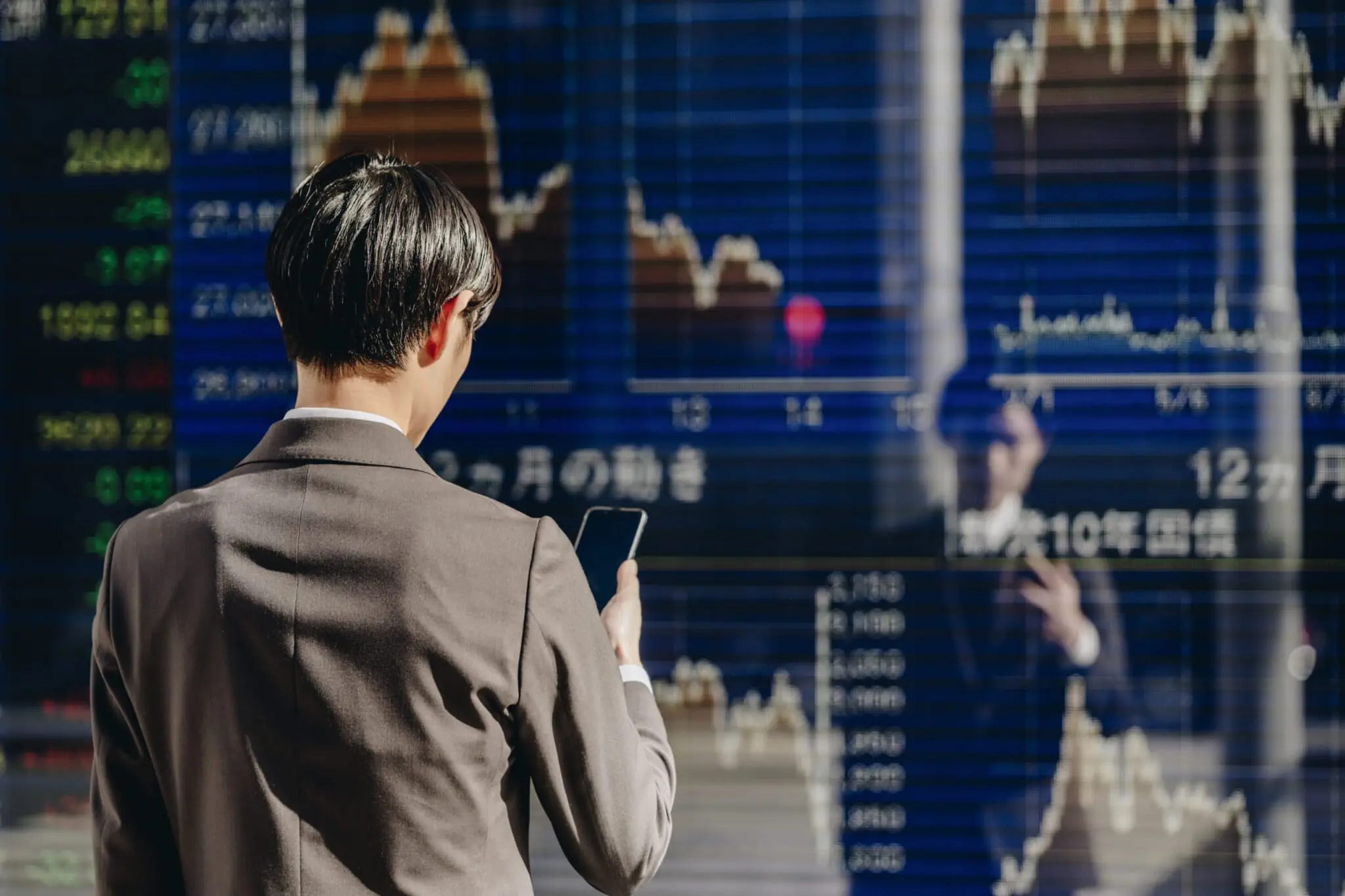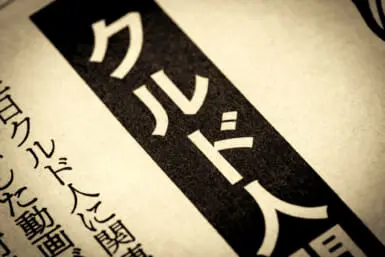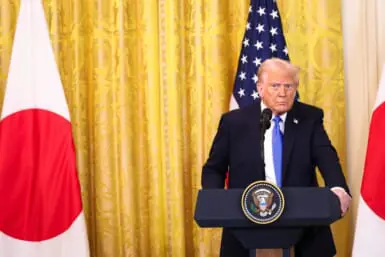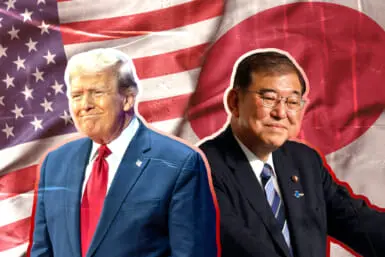Major stock indexes in Asia, including Japan’s Nikkei 225, nosedived on Monday, triggered by US President Donald Trump’s tariff hikes and Beijing’s forceful response to them. The Nikkei fell by as much as 8.8%, hitting 30,792.74 for the first time in a year and a half. The broader Topix, or Tokyo Stock Price Index, sank 8% to 2,284.69.
Nikkei and Topix Pause Trading for 10 Minutes
At 8:45 a.m. Tokyo time, the circuit breaker system paused trading for 10 minutes for the Nikkei, Topix and a number of other futures contracts. However, it didn’t affect the direct buying and selling of shares on the Tokyo Stock Exchange.
A circuit breaker was also triggered on the Taiwan stock exchange as stocks plunged almost 9.8% at the open. While in South Korea, a sidecar trading curb was activated on the Kopsi at 9:12 a.m this morning. It lasted for five minutes. In Hong Kong, the Hang Seng Index dropped as much as 13% to 19,868 at 2:25pm on Monday. That marks the biggest intraday decline in more than 10 years.
“The idea that there’s so much uncertainty going forward about how these tariffs are going to play out, that’s what’s really driving this plummet in the stock prices,” said Rintaro Nishimura, an associate at the Asia Group.
According to Deutsche Bank, Trump’s Liberation Day tariffs represent the “biggest shock to the global trading system since the Bretton Woods collapse in 1971 and will represent the largest tax increase for the US consumer since the 1968 Revenue and Expenditure Control Act that came during the Vietnam War.”
It added, “It’s hard to say we weren’t warned though. Trump has been pretty clear as to his views on tariffs for years, if not decades, and his actions and words pre– and post-inauguration have been quite clear, as have those of his Administration.”

Trump Won’t Budge on Tariffs
The American president remains defiant. When asked about tumbling markets by reporters aboard Air Force One on Sunday evening, he replied, “I don’t want anything to go down, but sometimes you have to take medicine to fix something.”









